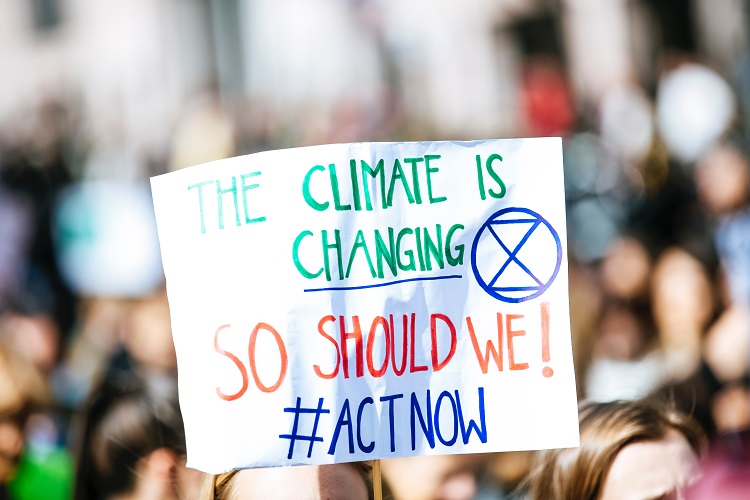Back to School: A Call to Action on Climate Change for University Endowments

The summer of 2023 has been a stark example of the escalating impacts of climate change. Extreme weather events across the globe, from typhoons and hurricanes to wildfires and heatwaves, have resulted in human casualties and disrupted ecosystems. The end of summer on the calendar will likely not mean an end to extreme weather, but it does mean that hundreds of thousands of young people, most of whom (regardless of political affiliation), will return to college campuses with increased concerns about climate change, and questions regarding what their institutions are doing about it.
A decade ago, fossil fuel divestment movements began to spread across campuses nationwide. While these movements may have quietened down over the years, the recent climate events are likely to reignite them with even greater fervor. Today’s students, more informed and concerned about the environment, and the role that fossil fuel companies have played in delaying action, will undoubtedly exert increasing pressure on their universities to take decisive action against climate change.
Most large institutions have faced the question of divestment. Many have determined that remaining invested in fossil fuel companies and using their voices as shareholders would be the most effective way to make an impact and create financial value. However, those same institutions that decided to engage with high polluting companies are having difficulty pointing out meaningful progress backing up that decision. Shareholder engagement efforts with oil and gas companies are plateauing and at the same time, there is growing skepticism around fossil fuel companies’ commitment to transitioning their businesses. Institutions such as the Church of England, that once held hope for fossil fuel companies to transition are now re-evaluating their stance and divesting from all their remaining oil and gas investments citing the inadequate progress made by fossil fuel companies towards achieving net-zero emissions.
For fiduciaries, administrators, and managers of university endowments, this presents both a challenge and an opportunity. The challenge lies in addressing the likely growing calls for divestment from fossil fuels. The opportunity is to not only demonstrate that the institution is listening to student activists, but to take real meaningful action that protects endowments from the multifaceted financial risks posed by climate change. In some cases, divestment might be the right course of action, in others, a different or perhaps more nuanced approach might be required.
Those challenges and opportunities are profound on the campuses of large public universities, particularly the land-grant and flagship state universities where the actions and statements of these institutions have an outsized influence on not just state policy makers, but the opinions of the populace more broadly. The responsibility for managing these challenges typically rests with the university Board of Trustees (or similar) and their Investment Committees.
It’s also worth noting that the role of a university’s board is distinct from that of a corporate board. While the latter may prioritize short-term profits, the former must prioritize the long-term well-being and reputation of the institution. It’s also essential to recognize that the primary constituents of these universities are young people – the very generation that will bear the brunt of the climate challenges ahead. Their concerns, hopes, and aspirations cannot be dismissed as mere youthful idealism; they are grounded in the reality they are witnessing, and will continue to experience, unless we can decarbonize the global economy.
Public, land-grant universities are beacons of practical knowledge, progress, and societal advancement. Their actions, or lack thereof, send a powerful message to the broader community, particularly in the middle of the country, where climate action and urgency lags. Some Midwestern public universities have taken meaningful steps. The University of Michigan, for instance has committed to net zero, and on the urging of the Board of Regents, committed to divesting from fossil fuels. Choosing to ignore the clarion call of climate change not only risks alienating students but also jeopardizes the very reputation that these public universities have worked so hard to build. More importantly, these decisions will likely impact student and faculty recruitment.
To trustees and committee members: If you have not taken action to integrate climate considerations into the endowment investment policies, the fall semester presents a great opportunity to engage and further study the topic with staff, students and faculty. Maintaining the status quo, or the position that taking some action is “too expensive” is simply not a viable option. The world is changing, and with it, the expectations and demands of the younger generation. By taking steps, you not only safeguard the financial health of the endowment but also align with the research of your faculty and the curriculum of about every college on your campus. In the end, it’s not about divestment. It’s about situational awareness and understanding that implementing climate-aligned policies and approaches can improve long-term risk-adjusted performance. But more than anything, it’s about stewardship, responsibility, and doing right by those who look up to you for guidance and leadership.
